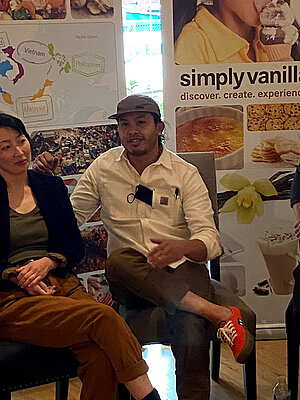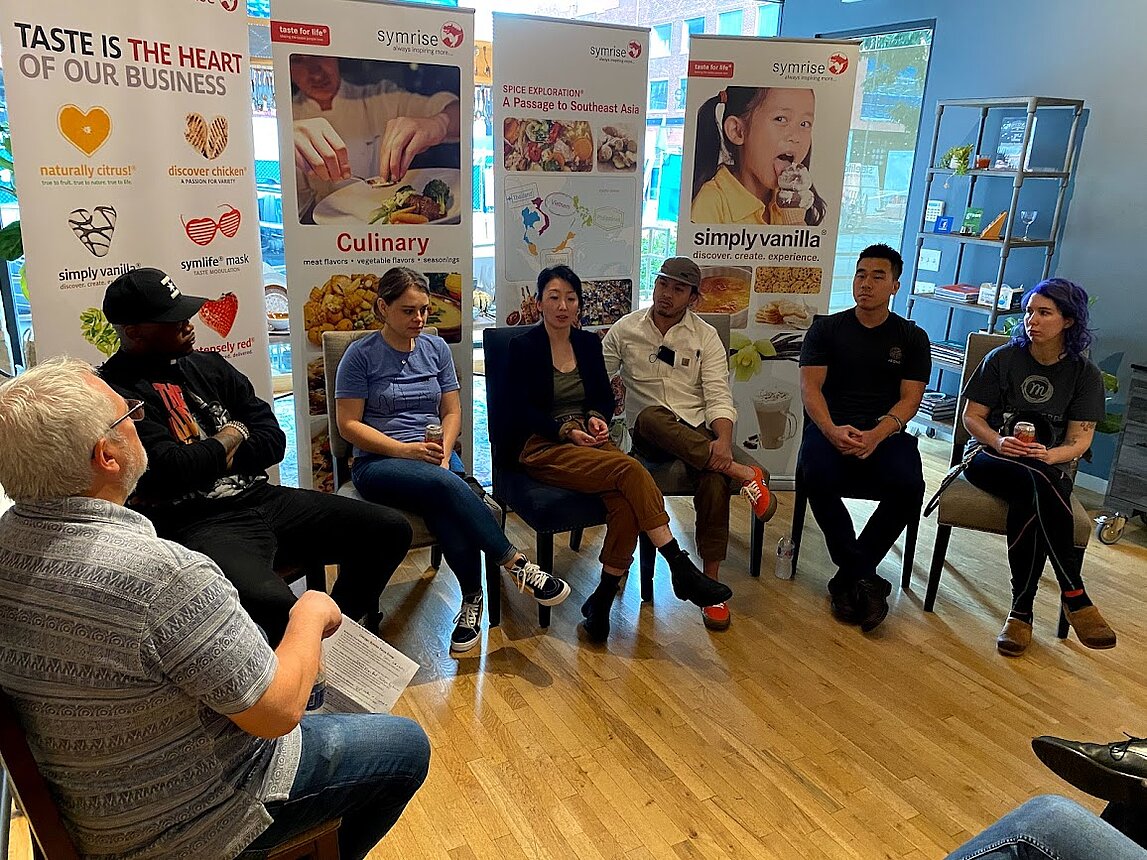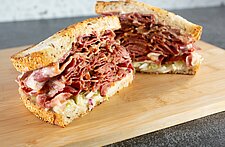In an Uncertain Time, Chefs and Industry Professionals Move to the Predictability of a Set Menu
Last month’s panel discussion hosted in Chicago by Symrise and StarChefs featuring a group of StarChefs Rising Star award winners revealed the biggest challenge hospitality professional face today: uncertainty. Supply chain disruptions, staffing shortages and a constantly evolving public health crisis have the entire restaurant industry scrambling to adapt. Throughout the lively and candid discussion, the panelists articulated how the uncertainty of the current moment has changed every aspect of how they approach their business - from creating menus to setting schedules - and how achieving some measure of predictability has become the new goal. One method of achieving this goal: moving away from à la carte dining towards set menus.
The pandemic upended normal life for everyone in 2020 and 2021, and caused tremendous hardship for many. These months were particularly difficult for the hospitality industry that was among the first to shut down in 2020 and still, some 18 months later, is experiencing constant upheaval. Not only did the pandemic cause many restaurants to shut down completely for a time, the path to re-opening has been plagued by changing public health regulations, an unusual amount of turnover in staffing and difficulties sourcing ingredients. Restaurant owners have adjusted on the fly - creating outdoor dining spaces, moving to takeout and delivery, and setting new hours. Everyone is “trying to do more with less,” as panelist Bailey Sullivan said.
Check out the full recap of our StarChefs Rising Stars 2021 Chicago Rountable HERE
During the September 21 panel discussion, Symrise VP of Marketing and Consumer Insights Emmanuel Laroche asked the panelists many, far-reaching questions - from where they get the inspiration for a new dish to their latest ingredient obsessions. Yet the theme of uncertainty and the need for some measure of predictability bubbled to the surface no matter the question on the table.
For example, in discussing seasonal ingredients as a source of inspiration, pastry chef Genie Kwon pointed out that as chefs, they are at the mercy of their purveyors and their purveyors are at the mercy of Mother Nature. This year, for example, not only was the harvest poor, but there were not enough farm workers to harvest the crops. As a result, she has to narrow her menu based on what produce she could count on getting.
But it was when Laroche asked the panelists where they saw their industry evolving in the next two to three years that we learned the different ways that chefs are trying to make their business more predictable in an ever-changing environment. One trend that was already on the upswing before the pandemic, but has become even more compelling today is the tasting menu. Tasting menus allow chefs to create one set menu designed around the ingredients they have on hand, which guarantees that they do not end up developing a new dish only to have customers reject it or buy pricey ingredients for a dish that doesn’t sell. Moreover, a tasting menu gives chefs greater control over the amount of revenue each cover generates.
Tim Flores and Genie Kwon of the bakery and modern Filipino restaurant Kasama opened their business during the pandemic and, as a result, ended up jettisoning their entire business plan. Initially, they were counting on dinner - with its attendant alcohol sales - to underwrite the less profitable counter-service bakery business, but during the pandemic, their takeout business was what kept them afloat.
Today, given the challenges of finding staff, paying a living wage, and the rising costs of ingredients, an à la carte dinner menu no longer makes sense for small, independent restaurants like Kasama. “Moving forward, [the question is] how can we create more revenue with less people.” Flores explained. “That’s why we are moving toward a tasting menu at night because we can set a price and say ‘this is the cost.’” Part of the appeal of the tasting menu is psychological. Flores argued that guests are more willing to pay $150 or $160 for a multi-course tasting menu than $45 for one entrée.
Bailey Sullivan, the chef de cuisine at the award-winning Italian restaurant Monteverde echoed those sentiments. She noted that they were down to serving dinner four nights a week as a way to deal with staffing shortages and labor costs, yet they are are serving more guests than ever. Sullivan predicted that moving forward restaurants will either go more casual or rely on a set menu. Sullivan noted that her partner works at another high-end Chicago restaurant, Sepia, that prior to the pandemic offered both a tasting menu and à la carte options. But currently Sepia is only offering the tasting menu because it helps control the food costs at a moment when ingredient prices - particularly imported ingredients - are rising.
Another benefit to the tasting menu? Small increases in the price of the menu don’t spook the customer but can mean a lot to the restaurant. Genie Kwon put it this way. “If [customers] are willing to pay $150, they would pay $160 and that $10 makes a much bigger difference to us than it does to them.”
Fewer choices for the customer does create greater certainty and predictability for restaurants in a time when those are hard to come by. But will the customers balk at not being able to order exactly what they want, when they want, and possibly paying higher prices to boot? It will be interesting to see if customers embrace the tasting menu trend as much as restaurants hope that they will.
For more insights, trends and chef coverage, subscribe to our newsletter HERE





